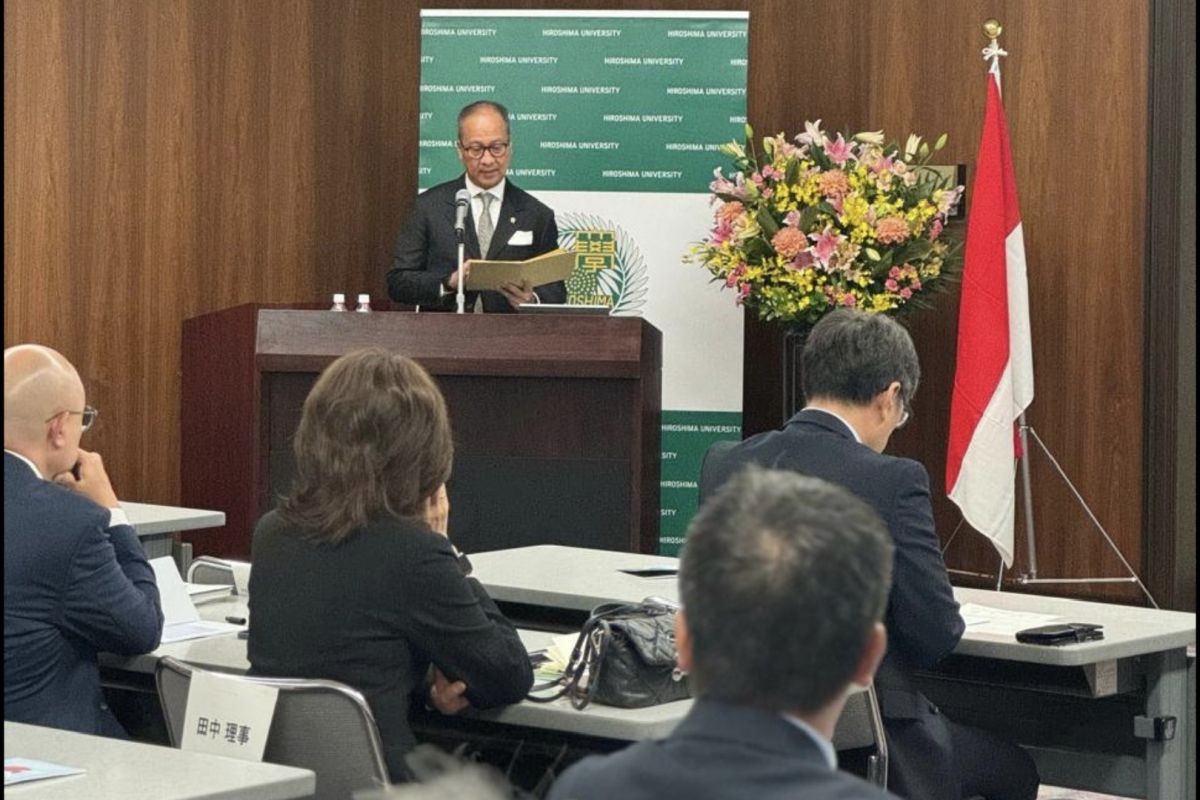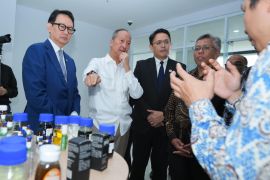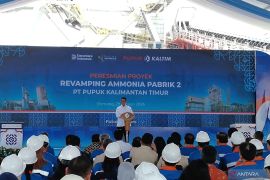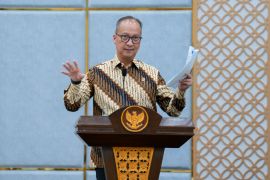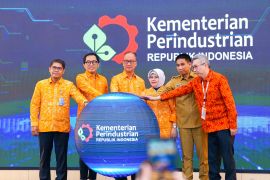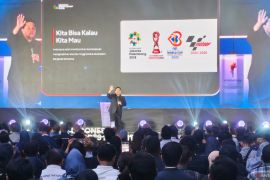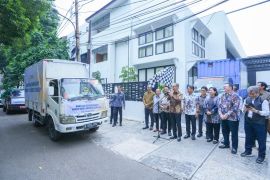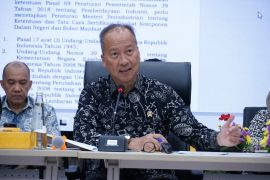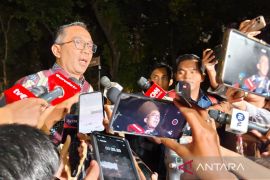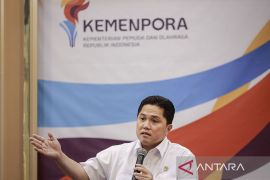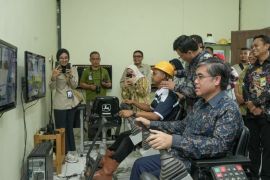Speaking during a public lecture at Hiroshima University, Japan, on Monday, the minister stated that Indonesia is currently developing a new approach to industrialization tailored to the dynamic global landscape while addressing increasingly complex domestic challenges.
"The Indonesian government has launched Asta Cita, a national development vision encompassing eight major missions, six of which have now been implemented through a strategic framework known as SBIN," he noted in a statement on Monday (July 14).
One of the programs underway is the downstreaming of natural resources, as Indonesia continued exporting unprocessed nickel ore, bauxite, and palm oil until 2019.
According to the minister, these products provided limited added value, created few jobs, and resulted in unstable profit margins.
Since then, the government has adopted policies requiring local processing of natural resources through its downstreaming initiative.
"This transformation is manifested in the establishment of the Morowali Industrial Estate in Central Sulawesi, which has become a globally competitive industrial center, home to a cluster of multinational companies in the nickel refining and battery component sectors," he remarked.
Currently, tens of thousands of Indonesian workers are employed in producing high-quality stainless steel and nickel sulfate for use in batteries.
The same approach is being applied to other commodities, including bauxite, copper, and palm oil.
"Indonesia is now entering a new value chain for strategic commodities such as cobalt, lithium, and rare earth elements, all of which are essential elements in supporting the global shift toward green energy," the minister remarked.
The next major focus is the advancement of industrial technology. According to Kartasasmita, through the Making Indonesia 4.0 roadmap, the government is accelerating industrial transformation from traditional production systems to smarter, more connected, and digitally integrated systems.
"In the textile sector, for example, sensor-based weaving and zero-waste dyeing systems have now been implemented," he noted.
Similarly, the food and beverage sector has begun implementing blockchain technology to ensure comprehensive product traceability from upstream to downstream.
In the automotive components sector, technology integration has enabled robotic assembly and just-in-time logistics systems, the minister added.
Related news: Ministry sees scope to develop maritime industrialization further
He highlighted that thousands of small and medium-sized enterprises (SMEs) have also been introduced to similar technologies through government-funded centers of excellence and training programs, including close collaborations with training institutions and industries in Japan.
He then highlighted green industrialization as another key initiative, signaling a pivot away from environmentally harmful development in response to growing demands from markets, investors, and regulators to adhere to sustainability principles.
As such, Indonesia's industrialization strategy now embraces the principle of ecological modernization. In the Batang Industrial Estate, Central Java, the government has mandated wastewater reuse, improvement in energy efficiency, and implementation of industrial symbiosis practices.
Lastly, Kartasasmita emphasized the vital role of human resource development as the foundation for successful industrialization.
To this end, the Indonesian government continues to strengthen vocational education by building polytechnics, revitalizing vocational training centers, and expanding digital learning platforms.
Related news: Industrialization and downstreaming to increase GDP: Bappenas
Translator: Ahmad Muzdaffar, Resinta Sulistiyandari
Editor: Rahmad Nasution
Copyright © ANTARA 2025
